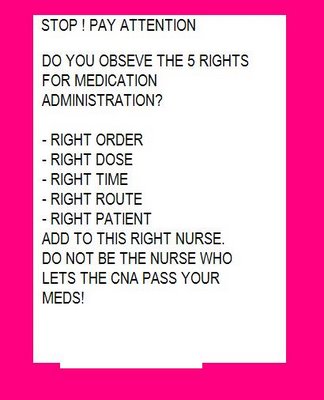RED ALERT FOR MEDICATION ADMINISTRATION
 Updated 4/25
Updated 4/25daily routine. However, it is important to make every attempt
Here are some helpful hints:
FOR ADMINISTRATION OF NARCOTIC DRIPS
- AVOID RUSHING WHEN CHECKING MEDICATIONS.
- AVOID CHECKING ORDERS AND TALKING ON THE PHONE.
- IT IS OKAY TO BE OVERLY CAUTIOUS WHEN PASSING MEDICATIONS.























